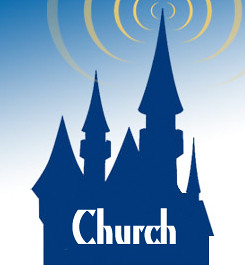 To examine the church in the New Testament is to witness God’s people on mission for the Gospel. Church is seen as an identity – who we are (a Gospel Community) – which informs our activity (a Gospel Mission).
To examine the church in the New Testament is to witness God’s people on mission for the Gospel. Church is seen as an identity – who we are (a Gospel Community) – which informs our activity (a Gospel Mission).
However, the pervasive perspective today on church is something more akin to Disneyland. Church is seen as a destination, an end-point, a place we simply go on Sundays. This ‘church as destination’ viewpoint can cultivate in us harmful ways to think about church.
When the church is a destination…
It feeds our consumer mentality. Think about a trip to Disneyland. We evaluate it based on what we get out it, not what we put into it. Were the rides fun, did they meet my need for excitement, did they greet me well, did I have to spend a lot of money, etc.? Destination-understanding does the same with church. Church becomes ‘good’ or ‘bad’ based on how we felt about the sermon, the song selection, the fact whether or not we were warmly greeted and other aspects of our experience that Sunday morning.
Church becomes just one more thing in life that exists to entertain us or meet our demands. But the church is about the people who compose it living on mission in the world. In other words, the church is not about just coming together but being sent out.
Church is more like a soldier’s experience at Fort Hood than a Mickey Mouse fanatic at Disneyland. Troops arrive at Fort Hood knowing they will be encouraged, trained and equipped in order to ultimately be sent out to their real destination. The mission is not at Fort Hood but somewhere else. The same is true of church. The real destination of the church’s mission lies not within the four walls of the building but outside of it.
God’s mission is best accomplished not when we come to church but when we leave it. Destination-oriented thinking loses sight of this critical truth.
It provides a false definition of faithfulness. Growing up I would say a faithful church member was one who regularly attended Sunday services. Since I saw church as merely a destination, I gave people the same marks I’d give to those who make an annual pilgrimage to Orlando or Anaheim. Some are faithful to church. Some are faithful to Disneyland. When something’s just a destination, attendance is the metric.
But if the church is really a people on Gospel mission in the world it seems rather ridiculous to consider attendance as the true mark of fidelity. Attendance indicates that a person has mastered the art of sitting (maybe even singing and listening as well). It doesn’t indicate how well they are trying to reach the community where they live, how hard they work to display the Gospel in all areas of their life or the amount of time they’ve spent in prayer on behalf of those far from Christ.
Think again about a soldier and Fort Hood. Do commanding officers ultimately base the fidelity of soldiers on their presence at boot camp or their execution of the mission once upon the battle field? Pretty easy answer. Church should no different.
Faithfulness is best evidenced not by what people do inside the church Sunday morning but what people do outside the church the Monday through Saturday.
It contributes to compartmentalization of life. Church as destination leads Christians to think that ‘church’ is more a place you go than a mission you live out. It’s a place like school, work and the gym are places – different segments which have a life of their own. Thus we have a work life, school life and now…church life. As such, we come to church on Sunday (for church life, of course) then leave the doors to go back to the real world. Complicating this is the idea, like Disneyland, church is the place we go to escape from the real world. We go to church, live briefly in that world for an hour or two every month or so then return to reality. Everything is compartmentalized. Church is left in a nice but fairly impotent box: church world…or even worse, church fantasy world.
But when church is seen as living out the Gospel mission in the world, the compartments of our thinking begin to break down. Like Fort Hood, I begin to see Sunday mornings as helping me to better live out the mission of God in the world. Not the fantasy world but the real world. Church becomes a type of spiritual boot camp that is integral for the real world, not independent of it. In other words, there is no church world/real world dichotomy. The mission tells me they are one and the same. I am sent by Jesus for Jesus into all areas of my life for his Kingdom’s sake. That is the mission.
Church isn’t just a place I go, it isn’t just something I do on Sunday mornings from time to time. It is who I am. Is is who we are.
So how do you see church?

2 thoughts on “The Church as Destination”
Awesome post, I like the Fort Hood analogy. Being a follower of Christ is a lifestyle, not a vacation spot.
Fantastic. I have struggled with this “Church as a destination” perception for years. All I know is if that is all it is…I would rather go to Disney.